Have you heard or read the terms ‘Ecobonus’ or ‘Superbonus’ in the context of renovating a house in Italy? Sadly the brief golden era of 110% tax rebates on home improvements has now passed, but there are still ways for the savvy property owner to claim significant public support towards their investment in Italian real estate.
We’ll take you through how the system works in 2023, and show you ways you can still get huge discounts on renovation work in Sicily.
If you’re new to the scheme, keep reading to discover how we got to this point. If the bonus system is old news to you, you might want to jump ahead to learn about the realities for home owners in Sicily today.
Before making any real estate purchase you should make sure you have fully understood the tax implications, whether you intend the property to be a holiday home, a permanent residence or a buy-to-let investment.
Looking for information on a specific bonus?
If you already know which bonus you need information on, you can head straight to the relevant section…
— Superbonus 90 —
— Ecobonus —
— Renovation bonus —
— Accessability bonus with Sconto in Fattura —
— Furniture bonus —
— Sismabonus —
Renovating Property to Restart an Economy
The signature policy that helped Italy bounce back from the pandemic to become The Economist’s Country of the Year in 2021, the bonus system was designed to encourage the general public to restore historic property in Italy rather than simply building new properties while existing structures fell into disrepair.
As a secondary goal, it was also driven by Italy’s commitment to sustainable energy use and reducing its carbon footprint.
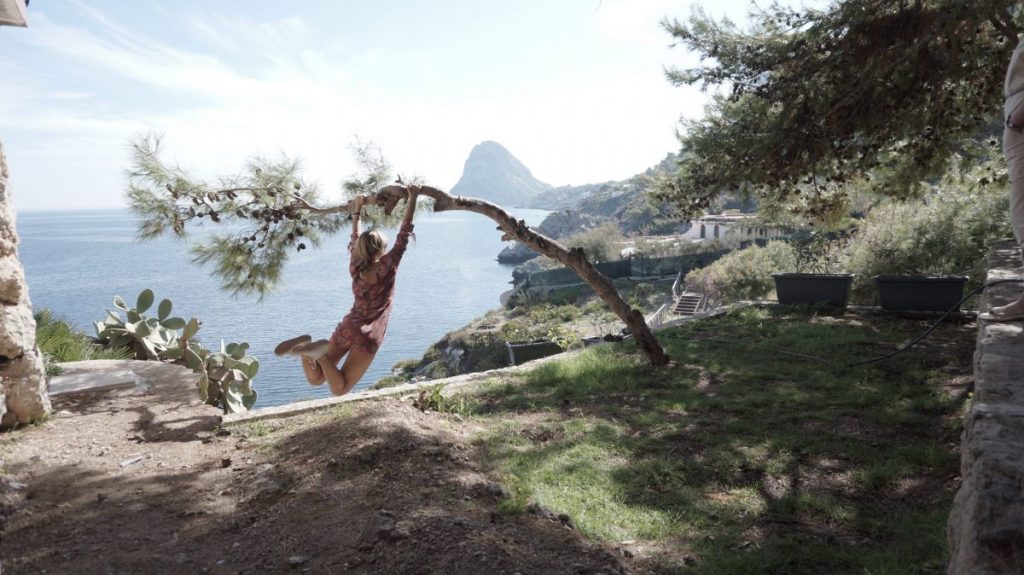
Finally, the Superbonus was seen as an important tool in the fight against the illegal black economy, in which unlicensed traders were not only dodging their tax responsibilities, but also working outside the regulatory framework designed to protect customers and provide important safeguards to the general public.
When economic assistance packages were initially distributed around Europe in the wake of the Covid-19 pandemic, most governments funnelled the money directly into the private sector, bailing out companies who had lost revenue during the crisis. The Italian model differed, offering only a baseline furlough scheme to its corporations but seeking as a first priority to stimulate the economy through a vast network of subsidies for home improvement works.
Renovating a house in Italy – for so long a rather fanciful Hollywood dream – became, for a period, an extremely lucrative investment proposition.
Tax Credits and the Sconto in Fattura
There were two ways to cash in on a ‘Bonus’: You could claim the entire subsidy back through tax rebates over a period of years, but non-residents or people who didn’t anticipate paying enough tax to benefit this way were offered an alternative route. The so-called sconto in fattura (effectively ‘discount on the bill’) was a way to assign the tax credits to a third party – be it a credit institution or even the tradespeople performing the work. The sconto in fattura didn’t raise the same total sum, but it did mean that you could get home improvements at a hefty discount with real-time effects on the bottom line.
Subsidising the property market was not simply a helping hand for investors. The Multiplier Effect meant that the reverberations of the Ecobonus and Superbonus were felt through the sectors of architecture, engineering, interior design, landscaping, electrical engineering, hydraulics and all manner of trades and crafts. Whether you were Ikea (other Swedish retail giants are available) or a local carpenter, this policy was a game changer.
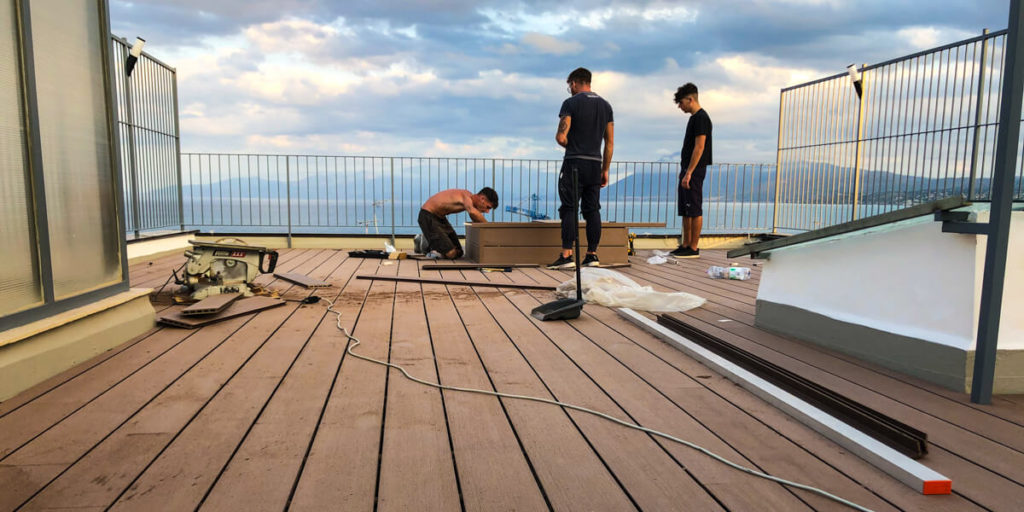
The 2023 Budget Reforms
Sadly, following the change of government at the end of 2022, the 2023 Legge di Bilancio – the national budget – brought some rather disappointing news for the sector. The bonus schemes were scaled right back, with some axed entirely. The landscape of the property bonus in 2023 is very much changed.
Amidst some political point scoring and allegations of fraud, the scheme – which had seen over €110bn of money poured into domestic improvements – was wound up. Since the spring of 2023 owners of single family homes have no longer been able to take advantage of the tax credits to subsidise restoration work.
However, there was a silver lining. The second route to take advantage of the Superbonus – that sconto in fattura we mentioned above – remains in place. This means that you can still receive a hefty discount on your bills when you invest in a range of environmentally friendly home improvements, including double glazing, insulation, solar panels and photovoltaic generators. Even green air conditioning units are eligible for this kind of discount.
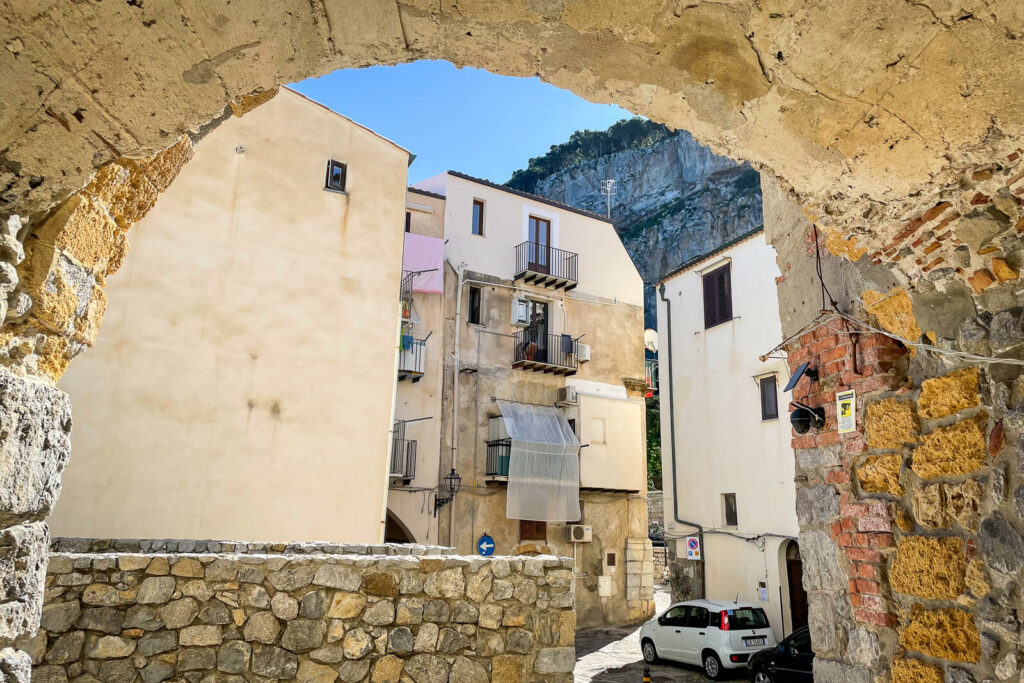
Superbonus 90 for 2023
If you own a detached residential building, and it’s used as your main home, you can still qualify for a 90% discount in the form of tax rebates staggered over five years.
In order to claim this, however, you will need to demonstrate that your income is below a threshold of around €15,000 per member of the household. In practice, this is a terrific opportunity for retired couples and others on low incomes to take advantage of the last days of the Superbonus scheme.
In order to apply for this bonus, you will need to visit the website of the ENEA (the Ministry for New Technology, Energy and Sustainable Economic Development) and submit an application. You will of course need to provide a lot of documentation, within three months of the work being completed, but we are here to help with this if you would like translation help, or advice on navigating the bureaucratic labyrinth.
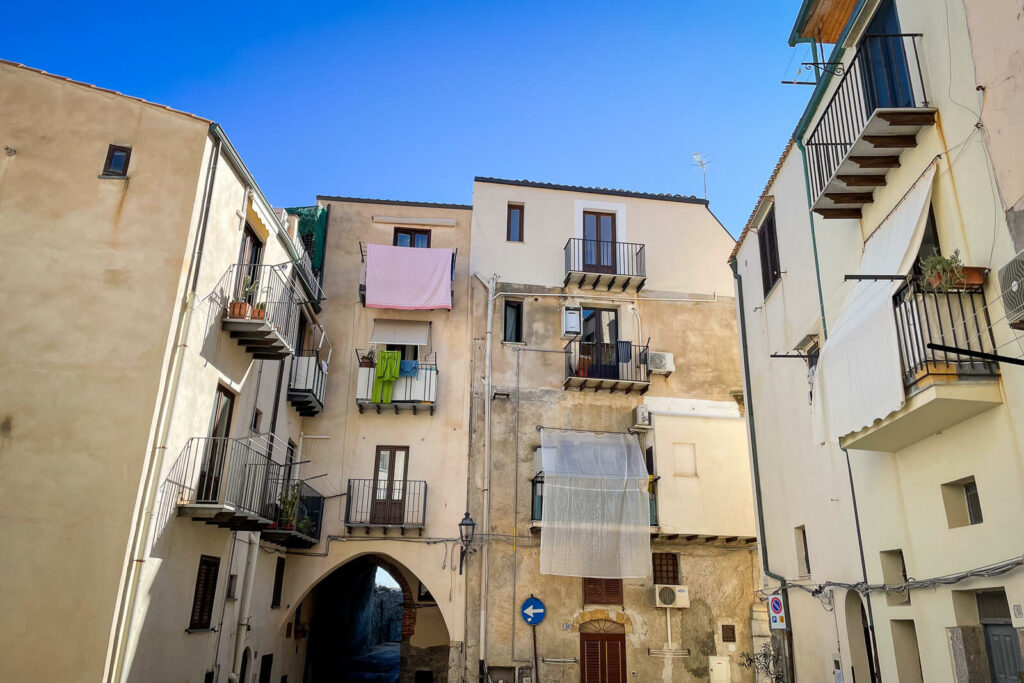
Ecobonus 2023
The Ecobonus tax credit scheme has survived the cuts, and allows for discounts to be claimed where the home improvement will improve the building’s energy rating.
The discount you can receive using the Ecobonus depends on the exact type of work being undertaken.
EcoBonus Discounts at 65%
This level of tax savings are on offer for the following range of work:
✔︎ Upgrades of air conditioning systems that produce hot air to more modern heat pump-powered units
✔︎ The replacement of traditional boilers with heat pumps
✔︎ Remote control and smart systems to effectively manage these pumps
✔︎ Cavity insulation to walls, roofs and ceilings
✔︎ Solar panel systems for the production of hot water
EcoBonus Discounts at 50%
If you want to upgrade a winter air conditioning system but the heat pumps mentioned above are impractical or beyond your budget, you can still claim tax relief at the reduced rate of 50%. This applies to substitutions of the old, inefficient units with either a condensing boiler or a biomass pellet-burning stove.
If the replacement or modification (but not the new installation) of windows and doors can be proven to improve your property’s energy performance through extra heat retention, these can also be claimed against the bonus in 2023 and 2024. This includes standard windows, French windows, shutters and north-facing awnings. Work up to a level of €60,000 is covered by the scheme.
The deadline for the ecobonus is 31 December 2024.
Renovation Bonus: 50% Refunds through Tax Credits
Beyond the 50% Ecobonus, you can also claim back 50% of your home improvement expenses in a wide range of categories through the 50% renovation bonus. This ‘Bonus Ristrutturazione’ runs right up to the end of 2024.
Work covered by this scheme includes:
✔︎ Replacement of external window frames and shutters with blinds
✔︎ Replacement or installation of lifts and safety staircases
✔︎ Construction and improvement of sanitary facilities
✔︎ Renovation of staircases and ramps
✔︎ Energy saving interventions
✔︎ Perimeter fencing
✔︎ Construction of internal staircases
✔︎ Installation of photovoltaic systems
So, whether you’re planning to update your windows, add a solar power system or improve the security of your Sicilian property with a sturdy fence, you will be able to benefit from a 50% discount in the form of tax deduction. This will be applied in ten annual increments, up to a maximum value of €96,000!
For this bonus, it is not possible to assign the credits to a third party or claim the invoice discount.
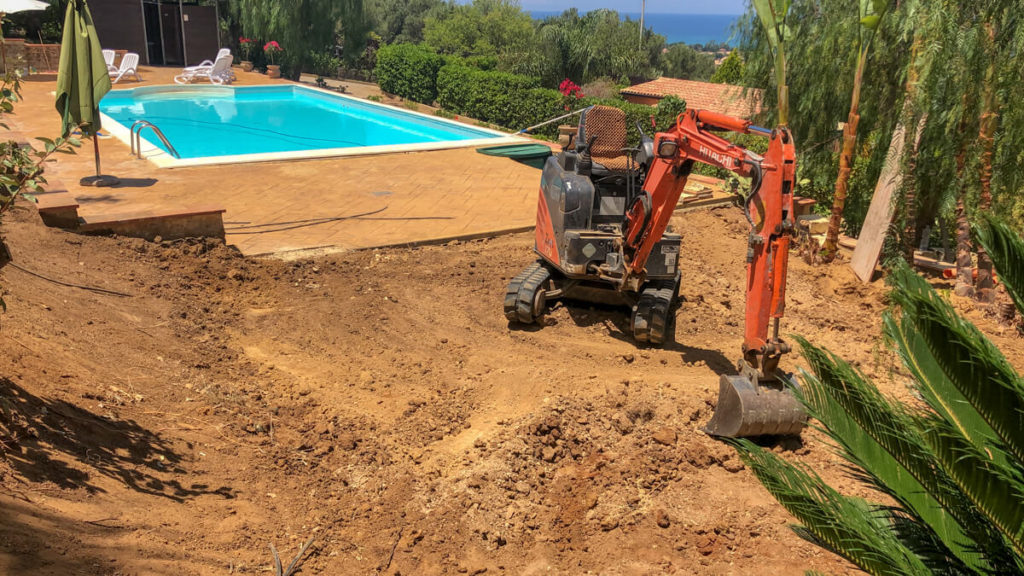
Accessibility Bonus for All – No Income Limits and Sconto in Fattura Available
A welcome new development comes in the form of a 75% bonus for the removal of architectural barriers to accessibility for people with disabilities (Bonus Barriere Architettoniche). This will run right up until the end of 2025, giving you an extra year in which to offer a more welcoming service to guests in your vacation properties, or increase the value of your family home.
The bonus is aimed at improving accessibility, usability and practicality, and this can take the following forms:
✔︎ Removing physical obstacles which impair mobility, especially for people with either temporarily or permanently reduced movement
✔︎ Removing obstacles which limit or prevent the comfortable and safe use of areas of the property or its equipment by anyone
✔︎ Adding signage and assistance equipment which allows people of reduced vision or hearing to navigate spaces, interact with their surroundings or perceive hazards
In practical terms, this could mean better-designed doors, windows, bathroom and kitchen installations, as well as stairlifts, ramps, and much more.
As the name suggests, the accessibility bonus is available to all property owners. There is no requirement to prove income, and this bonus can be assigned or received as a discount on the cost of work – the so-called sconto in fattura.
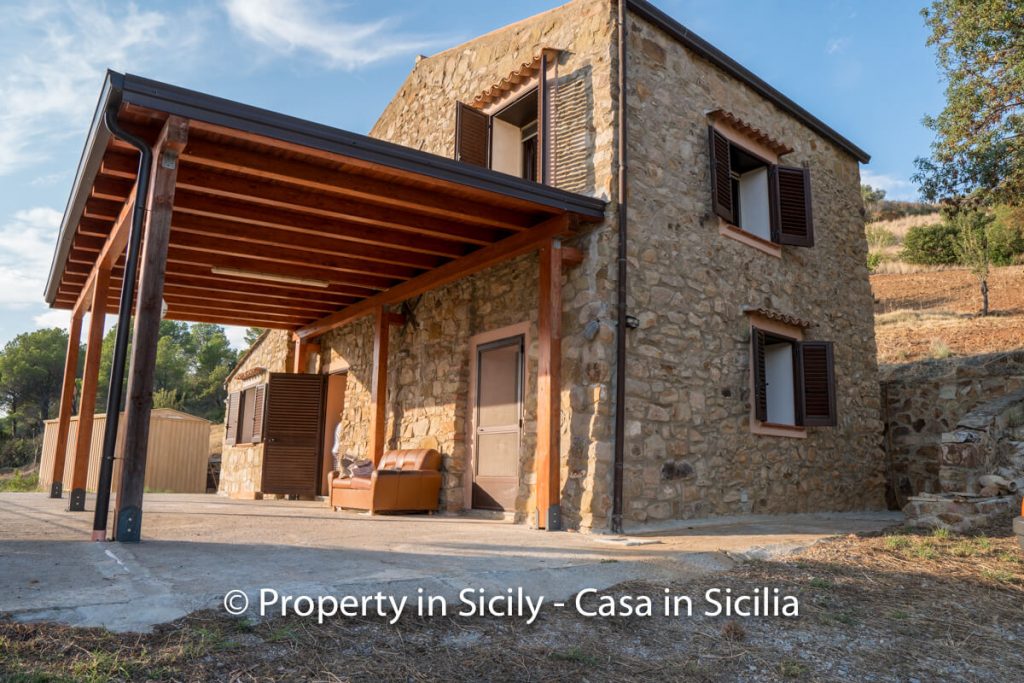
Furniture Bonus 2023
If you’re thinking of renovating your property, we really do recommend that you put your trust in the value of a good reputation. Trustworthy builders, electricians, plumbers and painters are worth their weight in gold. Even more important is an architect capable of guiding this team and transforming your ideas into reality. This figure has tremendous importance in Italy, as they have the ultimate responsibility for making sure that all paperwork is complete and accurate – and this is what determines whether you receive all these subsidies!
We have acted as project managers and consultants on major renovation and restoration work for scores of delighted clients, and are always happy to share our network of professionals and tradespeople. Many of these also speak multiple languages, including English. Chloé Pierron, for instance, is a young architect from Paris, who moved to Sicily in 2014 and has worked on domestic and corporate projects throughout the island. Not only a welcoming personality and a trustworthy professional, Chloé’s story is also a vivid illustration of just how much potential is open to foreigners who relocate to Sicily.
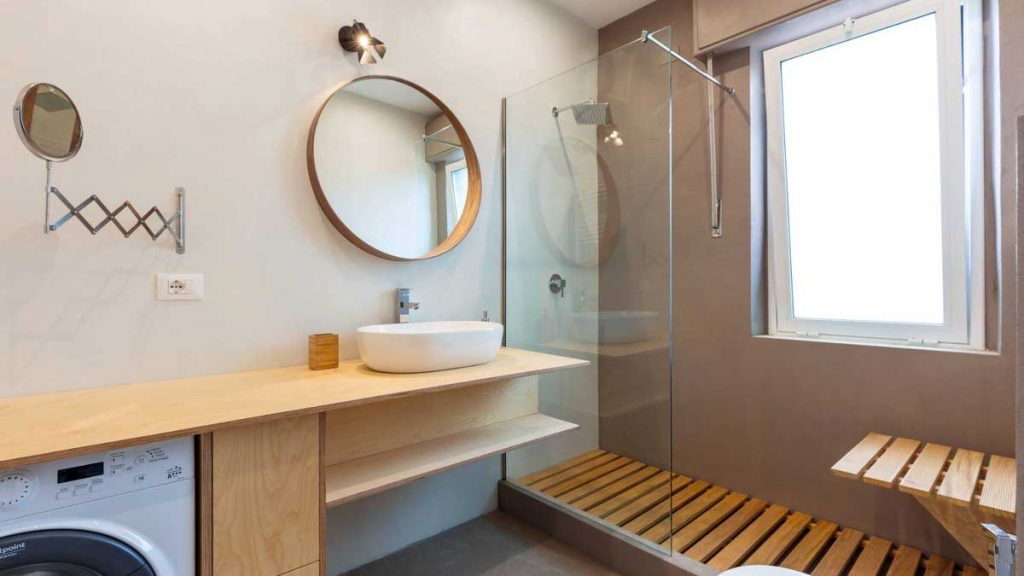
Sismabonus 2023
This category of bonus will be on offer until the end of 2024. It facilitates the kind of major renovation work that makes your property resistant to the damage caused by earthquakes and tectonic activity.
If your property is in a municipality which have been affected by earthquakes since 2009, the deadline is in fact even longer. Those residents will continue to be able to access the Sismabonus at a rate of 110% until the end of 2025.
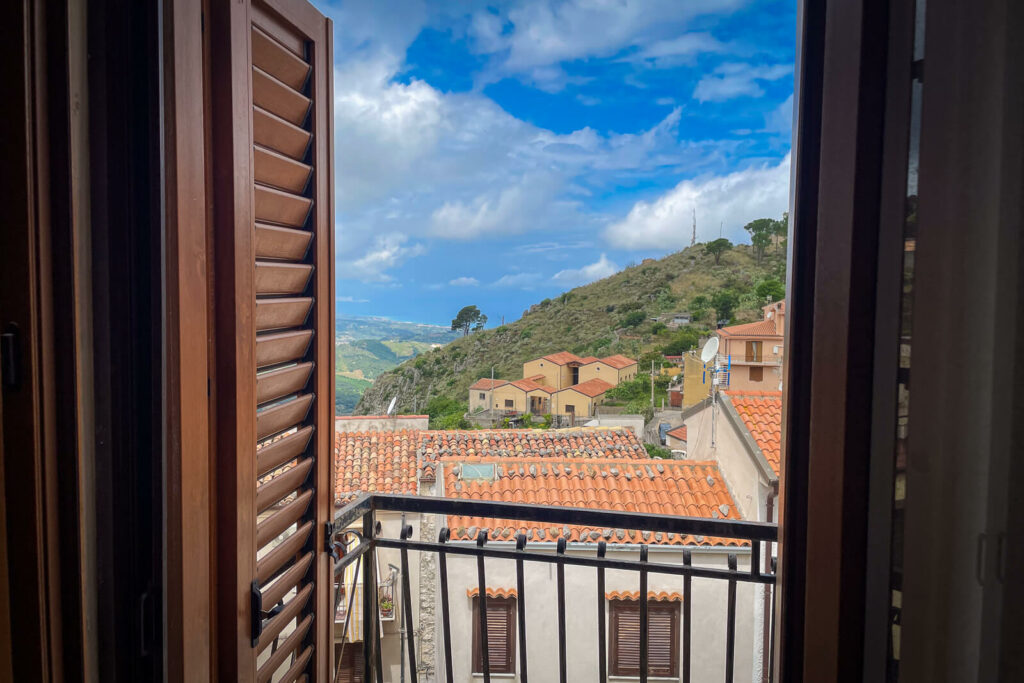
How Do I Claim Tax Deductions Under the Bonus Scheme?
Bonus payments take the form of tax credits and these are spread over a number of years. The exact terms vary depending on the bonus involved.
IVA (the Italian equivalent of VAT) will still be levied on subsidised purchases. However, the rate will continue to be a reduced 10%, rather than the standard 22%. Another route to savings!
Renovate Your Property in Sicily
If you’re thinking of renovating your property, we really do recommend that you put your trust in the value of a good reputation. Trustworthy builders, electricians, plumbers and painters are worth their weight in gold. Even more important is an architect capable of guiding this team and transforming your ideas into reality. This figure has tremendous importance in Italy, as they have the ultimate responsibility for making sure that all paperwork is complete and accurate – and this is what determines whether you receive all these subsidies!
We have acted as project managers and consultants on major renovation and restoration work for scores of delighted clients, and are always happy to share our network of professionals and tradespeople. Many of these also speak multiple languages, including English. Chloé Pierron, for instance, is a young architect from Paris, who moved to Sicily in 2014 and has worked on domestic and corporate projects throughout the island. Not only a welcoming personality and a trustworthy professional, Chloé’s story is also a vivid illustration of just how much potential is open to foreigners who relocate to Sicily.
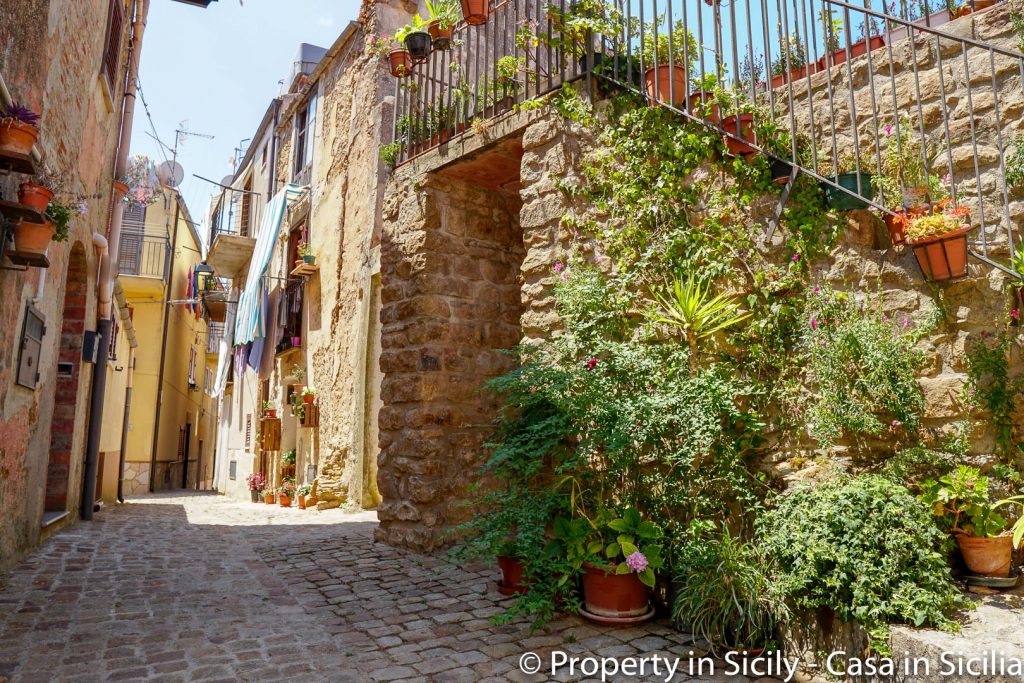
Relocate to Sicily and Save
If you own or are planning to buy property in Sicily in the near future, it would be well worth considering moving your permanent residence to the island.
Even without relying on property bonuses, in 2023 new arrivals can still be rewarded through a wide range of tax breaks for ex-pats. Take a look at our guide to find out how you can save.





